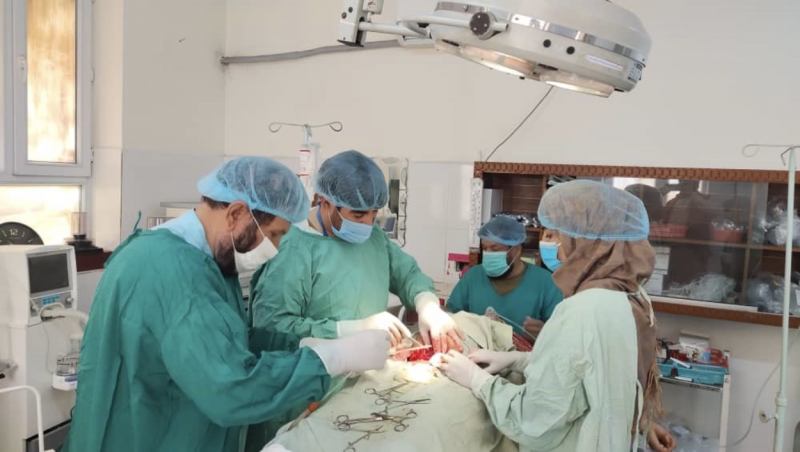
Afghanistan’s health system is on the brink of collapse: urgent action is needed
Health System & UHC, Civil unrest/conflict
January 25, 2022
Stories from the field: Special series on the COVID-19 response – Afghanistan
Ayesha, 29, is a midwife in a rural health facility in Afghanistan. She graduated from the provincial midwifery school supported by the government’s Sehatmandi programme, which provides essential primary care services including for maternal, newborn and child health. These vital health services that save the lives of many in the community have come under severe threat.
“I was born in a very remote district where health facilities were not available. I witnessed many pregnant mothers dying because there was no health care facility at my village or on the way to hospitals, located more than 50 km away. I decided to become a midwife and serve the women and children in the villages. I love my job and attend numerous institutional deliveries, and have contributed to the reduction of maternal mortality,” said Ayesha.
The primary care facility in the village is vital, serving 58,000 people including 13,340 women of childbearing age and 11,600 children under-five. Importantly, it provides emergency obstetric care, including Caesarean section services. Without this, women would have to travel far, and put themselves and their babies at risk.
Due to a lack of funding, staff in the health facility have not received their salaries for months, the clinic is faced with shortages of medicine and supplies, and patients are not able to access the essential health services they need. If this facility closes down, increasing ill health and mortality is inevitable. The facility’s struggles are not unique. The situation is replicated across the country because the Sehatmandi programme is no longer able to receive appropriate financial support due to the change in Afghanistan’s government. Previously funded by the World Bank, the European Commission, and USAID, there are now serious challenges to continuing these vital primary health care services.
The population is also suffering due to a recent drought that has affected crops and livestock. This, combined with rising food prices and the collapse of public services, led to acute food insecurity for nearly 19 million people in September and October 2021.
The Sehatmandi programme
The Sehatmandi programme is the backbone of Afghanistan’s health system. It provides affordable health care for millions of people through 2,331 health facilities in 34 provinces, covering 64% of all public health facilities. The programme employs more than 24,000 health workers, of which 8,000 are women.
The Sehatmandi programme originated as the System Enhancement for Health Action in Transition (SEHAT) Project from 2013-2018, and transformed into the Sehatmandi programme in 2018. Equity principles have been central in this approach, allowing harmonization across the entire country with the aim of increasing health service coverage, especially for rural populations.
Because of a funding pause, most of the Sehatmandi health facilities are not fully functional and have stock-outs of essential medicines. The breakdown in health facilities is affecting the availability of basic and essential health services, as well as humanitarian assistance, polio eradication and COVID-19 vaccination efforts.